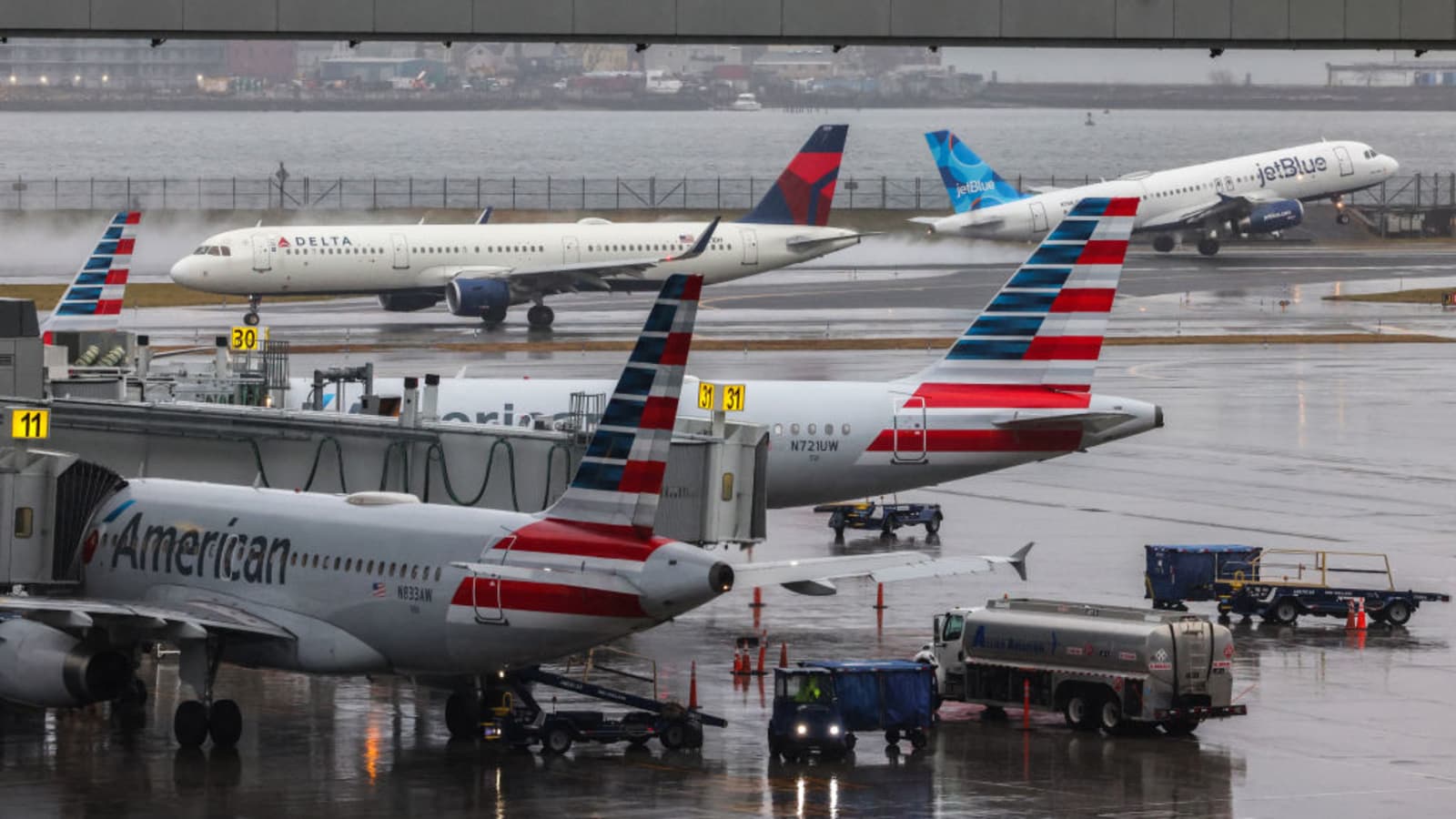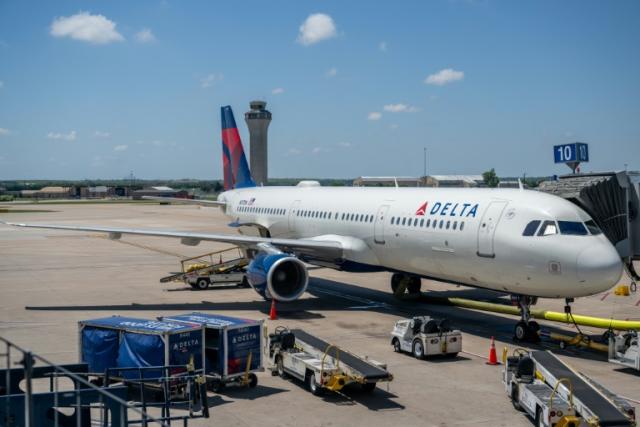Delta’s Earnings Forecast Cut Sends Shockwaves Through Airline Stocks, Prompting a Sharp Plunge in Market Values for 2024
The airline industry faced another blow as Delta Air Lines recently announced a downward revision of its 2024 earnings forecast. This update sent shockwaves through the market, causing a significant decline in the stock prices of Delta and other major airlines. The impact was felt across the board, with United, American, and Southwest Airlines all experiencing a drop in their share prices. In this article, we will delve into the details of Delta’s revised forecast, explore the reasons behind this adjustment, and analyze the implications for the broader airline industry.
Delta’s Revised Earnings Forecast for 2024
Delta Air Lines had initially projected earnings per share (EPS) of over $7 for 2024. However, the company recently revised its forecast, lowering the expected range to $6-$7 per share. This adjustment caught investors off guard, leading to a sharp decline in Delta’s stock price. The news had a ripple effect, causing other major airlines’ shares to plummet as well.
Impact on Other Major Airlines
United, American, and Southwest Airlines also experienced significant drops in their stock prices following the release of Delta’s revised earnings forecast. United and American witnessed a decline of approximately 10% each, while Southwest’s shares fell over 4%. The market’s reaction indicates the interconnectedness of the airline industry, as investors view any negative developments in one company as potentially affecting the entire sector.
Delta’s Strong Performance in 2023
Despite the revised earnings forecast, Delta Air Lines had a successful year in 2023. The company reported a doubling of its quarterly profit, with net income reaching $2.04 billion in the fourth quarter. This figure was a substantial increase from the $828 million reported during the same period in the previous year. Delta’s performance was buoyed by the gradual recovery of both corporate and leisure travel, which picked up pace as the world emerged from the depths of the Covid-19 pandemic.
Optimism for International Travel
Delta’s CEO, Ed Bastian, expressed optimism about the future of international travel. Bastian noted that the airline has already recovered nearly 90% of its pre-pandemic travel demand, highlighting the resilience and potential for growth in this sector. As more Americans set their sights on overseas destinations, Bastian expects a significant uptick in international travel, further boosting Delta’s prospects.

Factors Contributing to Delta’s Revised Forecast
Various factors have contributed to Delta Air Lines’ decision to revise its earnings forecast for 2024. Understanding these factors is crucial in comprehending the current state of the airline industry and its future prospects.
Ongoing Challenges from the Pandemic
Although the world has made substantial progress in overcoming the Covid-19 pandemic, its impact continues to linger in the airline industry. Delta, like its counterparts, faces ongoing challenges related to travel restrictions, changing government regulations, and the emergence of new variants of the virus. These factors introduce uncertainty into the market, making it difficult to accurately predict future earnings.
Rising Operating Costs
Another challenge faced by Delta and other airlines is the rising operating costs. Fuel prices, labor expenses, and maintenance costs have all increased significantly, putting pressure on profit margins. This trend has necessitated a revision of the earnings forecast to reflect the impact of these escalating costs.
Competition and Pricing Pressure
The airline industry is fiercely competitive, with carriers vying for market share and passenger loyalty. This competition often leads to pricing pressure, as airlines offer discounted fares and promotions to attract customers. Delta Air Lines may have revised its forecast to account for the intense competition and its potential impact on revenues.
Implications for the Airline Industry

Delta’s downward revision of its earnings forecast has broader implications for the airline industry as a whole. Understanding these implications is crucial for investors, industry stakeholders, and travelers alike.
Investor Sentiment and Stock Performance
The market’s negative reaction to Delta’s revised forecast highlights the importance of investor sentiment in the airline industry. Stock prices are highly sensitive to any news or developments that may impact future profitability. The decline in share prices of Delta and other major airlines underscores investors’ concerns about the sector’s profitability in the near term.
Potential Industry-wide Revisions
Delta’s revision of its earnings forecast may prompt other airlines to reassess their own projections. The interconnectedness of the industry means that a revision by one major carrier can have a cascading effect on others. Investors and analysts will closely monitor the actions of other airlines in response to Delta’s announcement.
Travelers and Consumer Confidence
The airline industry’s financial health directly impacts travelers and consumer confidence. Any negative developments that could potentially affect the industry’s stability may lead to a decline in consumer confidence. This decline could, in turn, impact passenger numbers and travel demand, creating a challenging environment for airlines.
Conclusion
Delta Air Lines’ decision to lower its earnings forecast for 2024 has sent shockwaves through the airline industry. The downward revision, accompanied by a decline in stock prices, highlights the challenges faced by the sector as it emerges from the Covid-19 pandemic. Rising operating costs, ongoing pandemic-related challenges, and intense competition have all contributed to Delta’s revised forecast. The implications of this revision extend beyond Delta, potentially impacting other major airlines and the confidence of investors and consumers. As the industry adapts to the changing landscape, stakeholders will closely monitor developments and adjust their strategies accordingly.

